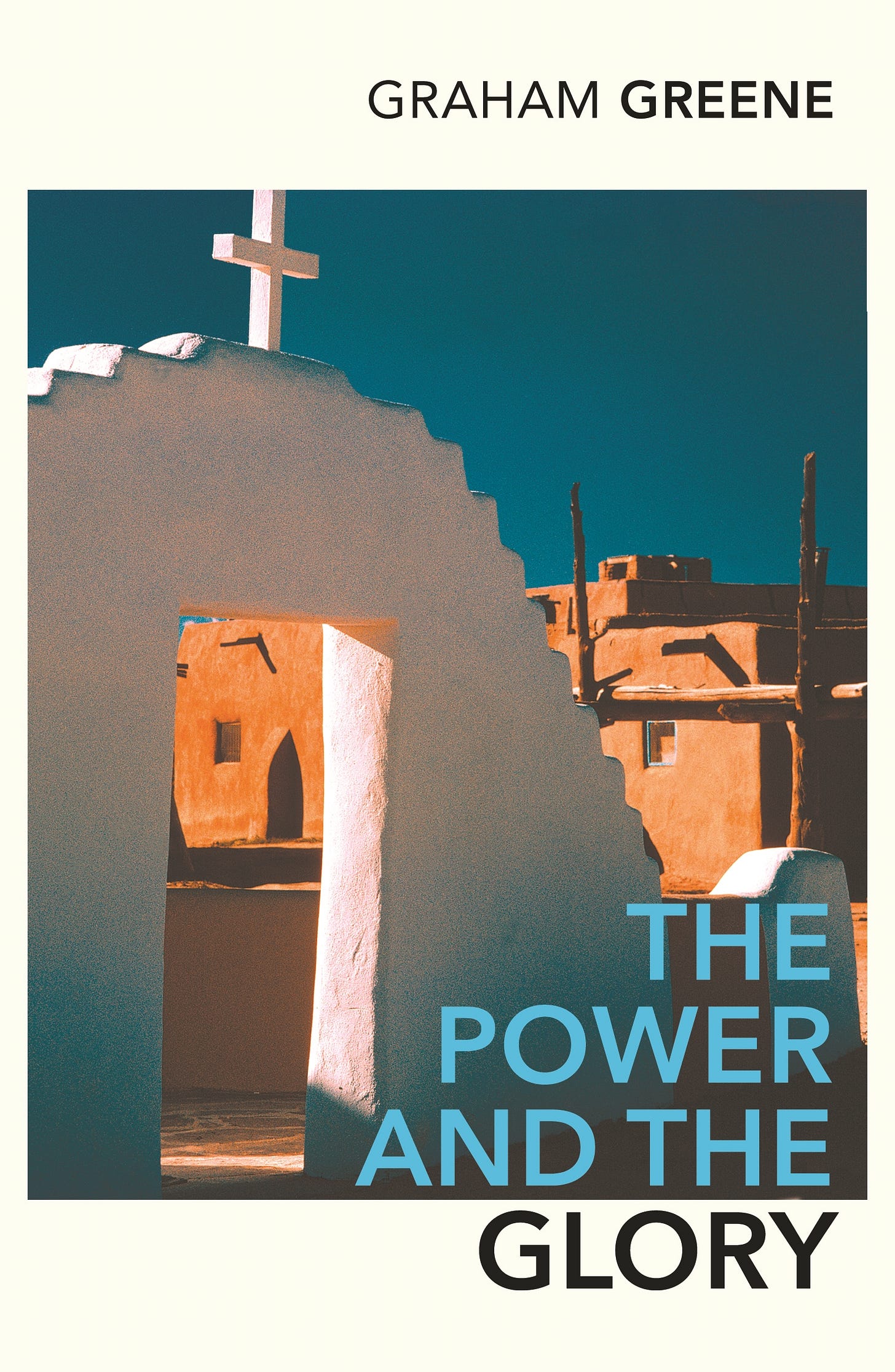The Power and the Glory
My thoughts on Graham Greene's classic novel
I have just finished reading Graham Greene’s classic novel The Power and the Glory. It is an amazing story about a morally complex priest fleeing Mexican authorities set on killing him.
The synopsis reads:
In the Mexican state of Tabasco in the 1930s, all vestiges of Catholicism are being outlawed by the government. As churches are razed, icons are banned, and the price of devotion is execution, an unnamed member of the clergy flees. He’s known only as the “whisky priest.” Beset by heretical vices, guilt, and an immoral past, he’s torn between self-destruction and self-preservation. Too modest to be a martyr, too stubborn to follow the law, and too craven to take a bullet, he now travels as one of the hunted—attending, in secret, to the spiritual needs of the faithful. When a peasant begs him to return to Tabasco to hear the confessions of a dying man, the whisky priest knows it’s a trap. But it’s also his duty—and possibly his salvation.
The book is set in 1930s Mexico when a socialist government was trying to purge Catholicism from Mexico in violent ways. Priests were exiled, some fled, others were forced to marry, and many were executed. It precipitated the Cristero Rey uprising where Catholic peasants fought back against the federales to preserve their faith. Read the book by David Bailey or see the movie For God’s Greater Glory about the uprising.
The Power and the Glory has been turned into a movie starring Laurence Olivier as the “Whisky Priest” and there is a good discussion of the book at the Reformed Form.
Greene’s novel is about faith, courage, guilt, and doubt. The whisky priest is very much an anti-hero, he’s given to vice, including lust and drink. Plus, he’s vain, cowardly, and yet courageous and pastoral. He desperately tries to flee the province where Catholics are particularly hated by authorities, yet he cannot refuse anyone who needs his help when called upon, so he is constantly waylaid.
For me, the final encounter between him and the Catholic-hating police lieutenant is particularly stimulating and jarring, as the lieutenant believes that in a godless world the best you can do is use violence to create a better world.
When looking at a poor child admiring his pistol, the lieutenant thinks:
He would eliminate from their childhood everything which had made him miserable, all that was poor, superstitious, and corrupt. They deserved nothing less than the truth - a vacant universe and a cooling world, the right to be happy in any way they chose. He was quite prepared to make a massacre for their sakes - first the church and then the foreigner and then the politician - even his own chief would one day have to go. He wanted to begin the world again with them, in a desert.
For my mind, that sums up so much of the anti-religious far left. A utopian paradise is just one violent purge away.
Anyway, Greene’s novel is clearly one novel that you must read, then go and learn about the Cristero rebellion in Mexico!



I have often wanted to try Graham Greene's novels. You have given me the push I needed.